#also interesting that he heavily associates depression with a loss of control
Text
Q: You’ve spoken a bit about the depression you experienced after The Beatles split. Has the whole process of navigating fame and the pressures of the music industry affected your mental health?
PAUL McCARTNEY: I think so, yes. But, in truth, I just took to booze. There wasn’t much time to have mental health issues, it was just, fuck it, it’s boozing or sleeping. But I’m sure it did, as they were very depressing times. It’s funny, I remember when I first met Linda, she was divorced with a child and living in New York and having to fend for herself. She got depression and I remember her saying she made a decision. She said, “You know what? I’m not going to have this depression, because if I do I’m going to be in the hands of other people. And I’m not going to allow that to happen.” So she sort of picked herself up by her bootstraps and said, “I’ve got to get out of this myself.” And I think that was what I was able to do, to get out of the depression by saying, “OK, this is really bad and I’ve got to do something about it.” So I did. And I think that’s my way, almost by being my own psychiatrist. You say, “This is not cool. You’re not as bad as you think you are” and all of the things. So you start to think, “OK.”
For instance, John saying, “All you ever wrote was ‘Yesterday’.” No. Wait a minute. “Let It Be”, “Eleanor Rigby”, “Lady Madonna”, for fuck’s sake. And I was happy to tell myself all of this. There’s more! “Hey Jude”, “The Fool On The Hill”, whatever. I think that’s how I got out of it, by persuading myself that it wasn’t a good idea to give in to my depression and my doubts. I had to look for ways...
But this is a common phenomenon. I remember talking to Lady Gaga once about something we were doing together – I’m dropping all the names! – and she was saying, “Well, there’s the self-loathing.” And I think, “Shit, that’s the first time I’d ever heard anyone talk about that.” And her, she was, like, at the top of her game, massively popular and everything she was doing was a hit, but she was just talking about self-loathing. And I’m saying, “I kind of know what you mean, but I’m not allowing that. I’m not having that. It’s not a road I want to go down.”
But you do get it. Any time you write a song, you’re going, “This is crap. This is terrible. Come on.” So I kick myself and say, “Get it better. If it’s terrible, get it better.” And sometimes someone will come along, someone who you respect, and say, “No, that’s great. Don’t worry about that,” and then show you a side to it that you didn’t notice and then you’ll go, “Oh, yeah.”
— Paul McCartney, GQ Magazine, 4th August 2020
#this is so unhealthy#paul just wills his depression into non existence or becomes an alcoholic#also interesting that he heavily associates depression with a loss of control#and it’s interesting how much he relies on external validation for his self-confidence#paul mccartney#my quotes
81 notes
·
View notes
Text
Let's Talk About NatsuMikan: Natsume (pt. 2)
And we're back with more exciting and mean Natsume! Here we will further explore Natsume's life and how absolutely dark his existence is, as well as some very important aspects of his personality that will be useful to us when NatsuMikan starts picking up speed.
Again, I am warning people that this whole essay in general talks heavily about topics like bullying, child abuse, suicidal ideation, and depression, so if those are triggering topics, it might be better for you to not read.
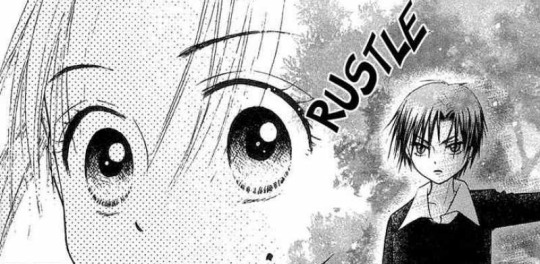
Previously, we were introduced to Natsume and he has sent Mikan on a dangerous quest to the Northern Woods. During that trip, she and her friends have captured his one and only best friend, Ruka, which will not bode well.
Chapter Five
Chapter Five is instrumental for completing Natsume’s introduction, long as it’s been. Natsume is a mysterious character, and he will continue to be evasive and strange for many chapters to come, but by the end of this chapter, we will understand some basic foundation for his character.
The chapter starts with Ruka’s point of view, recalling a moment when he saw Natsume cry, presumably after a mission. Ruka wonders why it’s only Natsume that has to go through “this”, and Natsume tells him that he can take it--for now. He says he wants to grow up and be an adult, to be big and strong enough to properly escape this hell. This is a consistent wish of Natsume’s, and in many ways his only wish: to grow up already.

Higuchi really out here trying to convince us this was supposed to be a cheerful story.
Natsume had to be an adult, had to make the selfless and responsible choices for the sake of his family and for Ruka, had to abandon play and smiles and laughter for a life of secret missions and frequent hospital trips. He’s dying and he wants to be an adult already because he’s certain he’ll never be able to grow up. He wants his body to match the level of responsibility he’s had to take on, but he can’t force the outside to match the inside, especially when he’ll probably be dead long before it happens anyway. This wish evolves and changes when he falls for Mikan, but it doesn’t go away.
He associates adulthood with control, because his life at the academy has been observing the adults control and use him. He wants control for once, to be able to make a choice and even just say no.
Ruka notes that Natsume hasn’t cried at all since that night, and that he now keeps all his sorrow locked away. This kid needs therapy, immediately. This is another reason that Ruka is so precious to Natsume. Ruka is compassionate and kind, so concerned about his friend that he would also shut away his own heart so that he can’t be happy for as long as Natsume is in agony.
Natsume has a scene of his own, where he snaps at Permy for saying that Mikan is full of crap and lying about being an alice. He points out that the academy is not an easy place to lie your way into, and Permy immediately backtracks and lies that she’s agreed with him this whole time. Like I’d said earlier about the loneliness involved in being surrounded by fans who don’t really know or understand you, having people all around you bend over backwards for your approval makes it clear that they really have no interest in what you’re saying, just that you’re the one saying it.
In the anime essay, I’d pointed out that because of their admiration for him, it would elude people that Natsume is in fact lonely. He speaks out against things and people rush to agree, not really considering why he might say that. This is a similar moment, though he doesn’t seem too bothered by Permy’s behavior. It’s still concerning, but it’s interesting to compare this “yes, man” attitude to Ruka’s.
There is obviously a difference between someone agreeing with every word of your mouth no matter how much it changes and contradicts, bending over backwards for your approval, and someone wanting to match you out of compassion, but Ruka’s line of thinking does still have some major flaws.
Ruka is a child, just like the rest of them, so even though this behavior is motivated by love and compassion, it’s still immature and raises some questions.
“If you won’t smile, I won’t smile either,” is a sweet line, but now Natsume is aware that Ruka’s misery is his fault. If he wasn’t so sad, Ruka could be happy. This doesn’t make Natsume happy; it just makes them both sad, and that doesn’t solve any problems. Naturally, Natsume would never say that, and Ruka would claim he’s unbothered and--just like Natsume--that he doesn’t care about hanging out with the others, but they’re both miserable now, and I think this is part of the reason why there’s a gap between them at the start of the manga, and why they’re a bit distant, despite being best friends.
They’re each other’s most important person, but they don’t really communicate that well, and Ruka constantly feels like a burden.
Natsume needs something that Ruka can’t give him, and that something is what he’ll eventually get from Mikan.
That being said, at the moment, Natsume is getting nothing but irritation from Mikan. When he finds out Mikan and her gang kidnapped Ruka, that irritation turns into rage and we see a final fundamental building block for Natsume’s character: his berserk button.
Natsume doesn’t care about the reasoning or justification for the kidnapping. He doesn’t care about explanations or common sense.
His rage only increases when he discovers Ruka was tied up and even beaten (he is told this by a classmate, when Ruka is actually unharmed). The other kids in Class B--his admirers--are terrified to see how scary Natsume is when he’s furious.
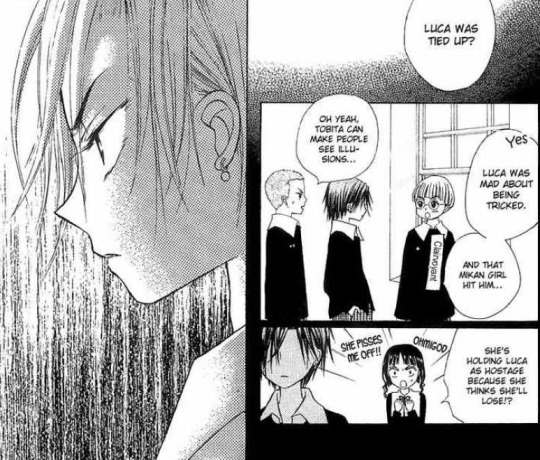
Natsume's biggest weakness is Ruka so Mikan is kinda fucked.
He doesn’t care about the game anymore. He only cares about Ruka.
So he goes to the Northern Woods, where nobody is expecting him. He tells Mikan to leave the school, which… she cannot do, obviously. He is overtaken by rage and he ceases to be reasonable.
He uses his alice on everyone but Ruka, and is about to use it on Mikan, but her alice nullifies it. Then Narumi kisses him, prompting him to pass out.
Here, we are introduced to a consistent character trait of Natsume’s, one that may contradict all that talk about forced maturity and selflessness. In fact, Natsume’s habit to go absolutely postal on anyone who threatens a loved one is a contradictory one. Going into a rage requires the sacrifice of common sense and reason for the sake of complete emotional detonation, and as a result he fails to understand that his actions could inadvertently hurt his loved ones or innocent bystanders. No reassuring words are enough to calm him down, and sure enough Natsume will destroy something.
It’s important that we see this trait now, as part of Natsume’s informal introduction, as we will see plenty more instances of it later on. In a way, going berserk for someone can even be a love language of his, where if a person being threatened is enough to set him off, he probably cares about them.
And just as interesting as seeing what he does in these situations is posing the why! Why is it that Natsume goes ballistic in these situations, when it requires the loss of the one thing he wishes he had more of, control? My guess is that Natsume has had a rough childhood and much of that time was spent running away from a dangerous entity. Staying cool and calculated under some conditions would have its benefits, but so would the quick-action and confidence that Natsume would gain by going berserk. When you have to protect someone, and Natsume has been in that situation many times, then it’s sometimes even beneficial to be able to lose yourself for a moment or two. But perhaps it’s not that either. Natsume is, despite all his airs of coldness and mystery, actually a very emotional person, and in that way he is easy to understand. Even if this isn’t a habit he developed by watching his loved ones ripped away from him through either extortion, manipulation, or just plain murder, it’s still something he might be predisposed to: attacking with everything he has despite not having a clear plan or even any real thought.
Chapter Six
We pick up where we left off and Natsume wakes up grumpy after everyone seeing him under the effects of Narumi’s pheromone alice. He causes more destruction, still in somewhat of a rage, and even causes Narumi a head wound though his teacher seems unbothered by this (or maybe even used to it, who can say).
The next thing that happens is that an alarm rings, signaling that Natsume is due for severe punishment, and, as Naru points out, not something he can help with this time. Narumi warns him to get a move on before a mystery enemy (Persona) arrives, and that is enough to scare Natsume into getting out of there. But not before he issues a word of warning of his own to Mikan, that she will regret coming to Alice Academy of her own free will.
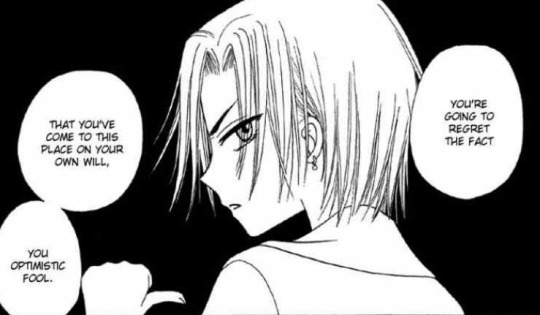
Isn't it interesting how her optimism, something he hated so much about her from the start, ends up being something he loves about her?
I have very many thoughts about this warning. It might even seem like a threat, as if Natsume will go out of his way to make sure she regrets her decision, but he does no such thing. He is convinced that Mikan doesn’t need help reaching that conclusion--she will realize it on her own because the school is simply that terrible.
It makes a little bit of sense to view Natsume’s hatred of Mikan this way: Mikan skipped right into his own personal hell with a smile on her face and a bubbly attitude. Meanwhile, he fought and kicked and screamed right until the very end when he was forced into attending the academy. And Mikan is not some normal girl who might be able to live a quiet and pleasant life in the academy. She’s already been marked, what with all the games about her enrollment, and that might anger Natsume even more: she’s really naive enough to walk into a place that’s not just hell to him, but inevitably to her too. Because of this, Natsume hates her and is predisposed to hate her more the more cheerful and optimistic she is.
And, unlike in the anime, this hatred takes much longer to go away.
Anyway, we see Natsume again later in class, when he shows up late after having just been terribly abused as punishment for his actions in the Northern Woods.
In the anime, Natsume catches Mikan insulting him while wearing the punishment mask, and although he’s covered in scratches and the kids are whispering about his bad mood, there’s not much else to it. He doesn’t seem any more unpleasant than he’s been this whole time.
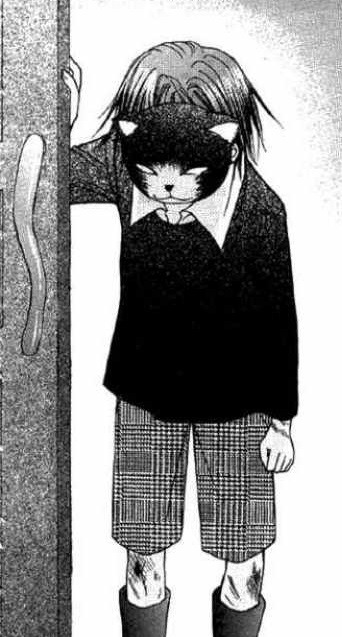
There's nothing funny about this but I will put here as a warning that anybody who jokes that kids should be hit will be hit by me!
In the manga, Natsume is so weak that he can hardly stand. It’s not just scratches, but blood and gashes on his wrists and legs. The mask is not only used to mark him, it’s also used to punish, by physically abusing him when Persona has better things to do.
He makes his way to his seat, but Narumi is on the way, just enough to make a quippy comment.
(I wonder sometimes about Narumi establishing himself as untrustworthy to the children, particularly Natsume, and how exactly that’s supposed to be a help to the student body at large. I mean there’s the possibility that Mikan is special, and her being Yuka’s daughter helped Narumi remember what he became a teacher for. In that case, it might make sense that Narumi, being so jaded and bitter, might be content acting as a villain to the abused children of the academy, and especially to Natsume, but I can’t help but feel that’s not the case. I don’t want to think that Narumi was willingly complicit and even amused by Natsume’s abuse. It’s difficult to tell for sure, though, because Narumi is way more mysterious than Natsume tries to be.)
Sumire tries to kiss up, whining to Natsume about how everyone is suddenly acting so nice to the new girl, until Natsume forcefully kicks her desk to shut her up. He only holds back with Ruka, who he would never lash out at.
Narumi then announces that Mikan shall have a partner, and that her partner will be Natsume. It’s funny because although Hotaru made it clear she didn’t want the job, Iinchou was willing to volunteer, but Narumi ignores that because he always wanted Natsume to be her partner. At this news, everyone is shocked, wondering if Mikan is supposed to be special, seeing as she’s paired up with Natsume of all people.
Narumi smiles to himself despite the chaos and then lets himself leave the classroom, saying, “let’s see what happens.”
Why does he partner them up?
Mikan thinks Narumi is crazy for this, and from an outside perspective it certainly might seem that way.
Natsume’s theory, as becomes clear later during the exams, is that this was organized by the ESP and Persona, perhaps as a punishment, but definitely with ulterior motives. He is closer to nailing it, but a little off. There is no way in hell the ESP would want to partner the child of rabble-rousers with the school’s pet child soldier. That’s a recipe for disaster. Knowing that the ESP was excited to welcome Mikan because of her alice, and that her presence at the school might encourage Yuka to try and save her, he wouldn’t have wanted to disturb his own plans.
So what is the reason?
It’s all Narumi, of course. Perhaps the O.G. shipper, Narumi could tell right away that Mikan’s nullification would be useful, particularly in regards to Natsume. Pairing them up is just another means to an end, as Narumi actually wants the kids to raise some trouble.
Chapter Seven
Being partners with Natsume is quite unhelpful.
Mikan ends up a No-Star and her Special-Star partner is for the most part absent throughout her ordeals, having to cope with it all on her own.
Chapter Seven is mainly lacking Natsume. He functions to not function for most of it, that is to establish himself as being a terrible partner.
There is a moment that stands out, when Mikan is writing a letter to her grandpa, where Natsume appears. Yes, he appears in her head to taunt her about her regret coming to the school, and she spites him by committing to optimism and determination in the future. But he also has a short appearance paralleling a panel of Mikan: they are both in their beds, awake.
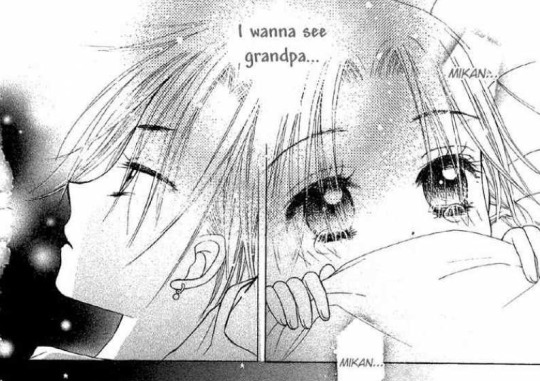
WHAT WAS THE REASON?????!??!?!?
This parallel is interesting, their panels right next to each other. She is thinking about her grandpa, and we have no way of knowing what Natsume is thinking about, but there has to be a reason for him to appear despite having been mostly absent so far in the chapter.
To me, it’s another narrative tool to pair them together. They have been so far, in more ways than one, and will continue to be as they fall in love, and this is just another example of how they’d been fated from the start. Even when they hate each other, and even when they aren’t thinking of each other, they’re still tied. Looking at those panels, and seeing Natsume despite his relative irrelevance to the plot, seems to be a message that there’s more to come between them. I don’t know if any of what I’m saying makes sense, or if it seems silly, but there’s very little analysis I can do without just talking about potential.
Later, with Mikan in a new mood, ready to make the most of her situation, the kids are talking about her resilience with both her no-star status and having Natsume as a partner.
Ruka does the talking for Natsume, warning Mikan that she’s being watched and remarking that nobody should have been assigned a no-star for simply disturbing class.
Once again, Mikan and Natsume are paired: they are both treated unfairly, with Mikan given a no-star status she doesn’t deserve, and Natsume given a special-star status despite the fact that he doesn’t even go to class most of the time. They’re the exceptions to the rule, and the reader is made to wonder what exactly it is that they have in common that would result in this treatment.
Ruka tells Mikan not to trust any teachers at the academy, not even Naru, and this is almost like hearing from Natsume himself. Unlike Mikan, who will happily make strong bonds with teachers like Narumi and Nodacchi, Natsume has absolutely no positive adult figures in his life. His father is far away, his mother is dead, and every teacher is someone he holds either directly or indirectly responsible for his suffering. The adults at the school have failed him and he has nobody to trust. Something Natsume needs is a positive role model, somebody he can look up to and have faith in, because as it stands he’s a traumatized boy who absorbs negativity and takes it out in bad ways. A trustworthy adult would very much help Natsume grow and learn better coping skills, and in the meantime it makes perfect sense that he would act out and even be a bully at times.
Chapter Eight
Natsume has a habit of ignoring any and all episodes where Mikan has confrontations with her teachers. He is either dozing off or listening to music with Ruka, and doesn’t seem particularly interested in even watching.
That being said, we see a new side to Natsume in this chapter, a new emotion in a way we haven’t before: fear.
Natsume ditches class with regularity. He does not care about being present. For most classes, he would simply walk out and go screw around somewhere else, but with the dangerous ability class, he doesn’t have that choice.
The other teachers may be complicit, but they won’t do the abuse themselves. Persona is not above that, as we have already noticed despite never even seeing him so far.
If Natsume does not want to attend the dangerous ability class, then he has to run for it, and in this chapter he does, like his life depends on it, because his safety sure does. He’s only ten years old and forced to do horrible missions for the school. This is one of the scenes that reminds me that he is just a child. He knows he could get punished for running, but he does it anyway. Maybe, if he runs fast enough, they won’t catch him. Maybe, if he doesn’t get caught, he doesn’t have to go on a mission. Maybe, just this once, they won’t mind if he doesn’t show. It’s such a childish and desperate thing to do, to avoid pain at the cost of more pain to come.
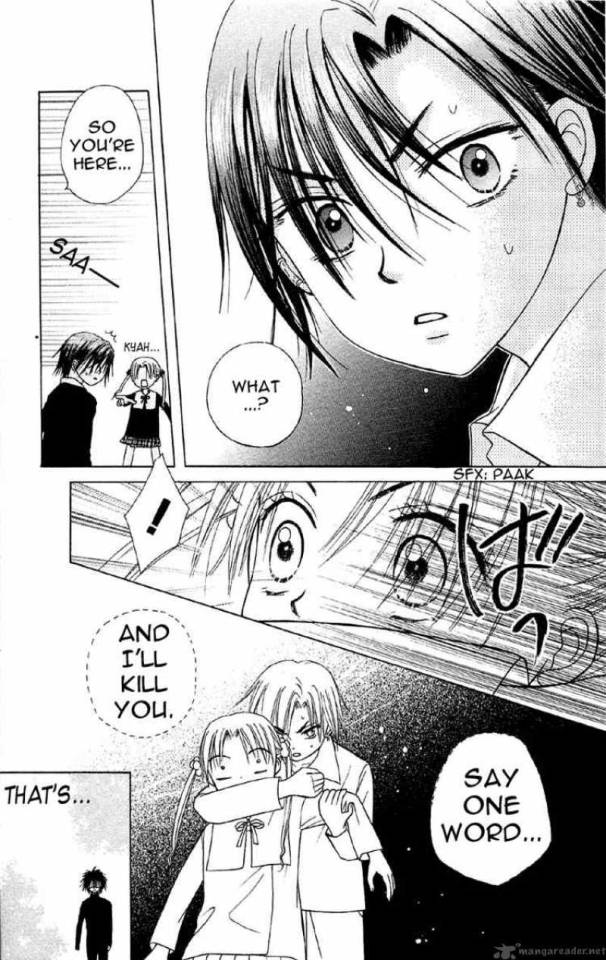
Natsume is scary when he's scared...
It’s funny that as he is running from pain, he runs into Mikan, who will later alleviate his pain. For now, he just shuts her up so that Persona can pass the area while looking for him. We see Persona for the first time, what Natsume is scared of more than anything, and although his fear seems obvious, Mikan is preoccupied by annoyance for being shut up like that.
They bicker--or she bickers at him, mostly--until the middle schoolers encounter them and start bullying them.
Natsume is ready to ignore them and walk away, until Sumire’s brother calls him a murderer, reminding us of the rumor Hotaru and Iinchou discussed. Natsume stops, and Sumire’s brother whines that he’s just a special star because he’s “Persona’s favorite”.
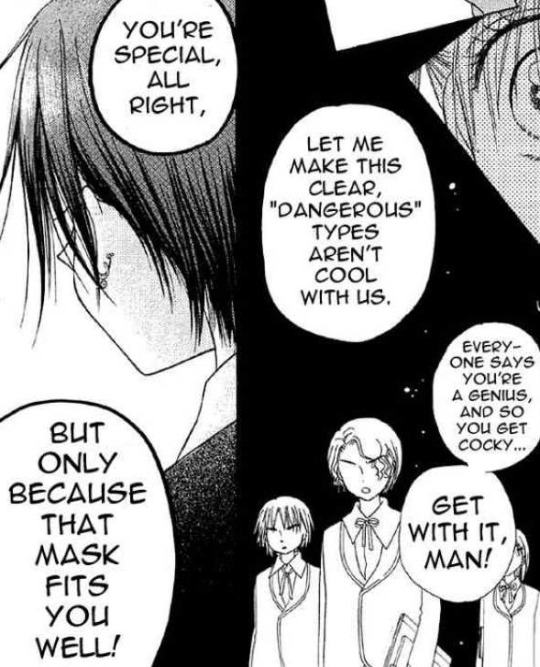
Sumire and her brother have, like, nothing in common other than curly hair, huh.
Being Persona’s favorite is no privilege, as we know now from the run-in we just had with him and Natsume’s fear. This sets Natsume off and he starts some fires. When they threaten to call Persona, who Natsume was just running from, he responds that they can call him all they want, but he’ll burn them before he can get there to capture him. We see once again, through Natsume standing up for himself, that his berserk button lacks reason (as he is willing to sacrifice punishment by Persona again).
In a last-ditch attempt to threaten him, the middle schoolers threaten Mikan, who they perceive to be Natsume’s new girlfriend. (Calling her his girlfriend is interesting because it is even more proof that they are being narratively paired together! It shouldn’t be a surprise at all that they eventually get together, when almost everybody around them pairs them up like this, even when they can’t stand each other.) They do not expect that Natsume actually hates her, and genuinely doesn’t care if she gets bullied or not. He smiles in twisted amusement at this turn of events and walks away for good this time, leaving Mikan to be bullied.
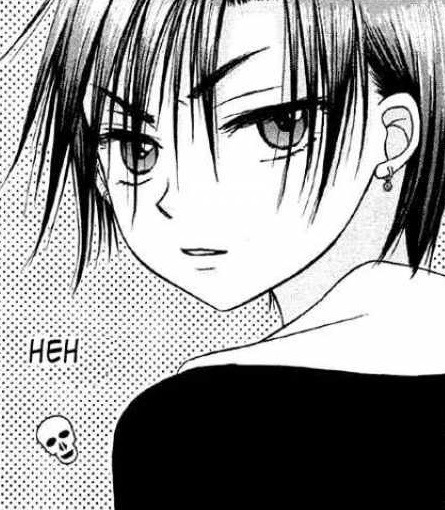
Aw, he's smiling! How sweet.... oh wait that's a skull.
Now, Natsume is a good person deep inside, somebody who is selfless and kind in secret ways. There is no secret kindness about this scene. He is not a nice person, for sure, and this scene is proof of it.
Natsume is used to sacrificing himself for the comfort and well-being of his loved ones, so there might be relief in not caring about the comfort or well-being of somebody, and being able to choose his own well-being before that of somebody else for once. It makes sense that he would be so amused, because this time nobody has anything to hold over his head.
Conclusion
We have seen some more of the abuse Natsume faces on a daily basis. He and Mikan have been partnered up and they are presented narratively as foils and as pairs even outside of that dynamic.
For the next part, we'll see even more examples of them being paired together, as well as how Natsume is isolated from his classmates.
<- Previous Next ->
#gakuen alice#alice academy#hyuuga natsume#natsume hyuuga#natsumikan#sakura mikan#mikan sakura#my meta#ga#mine#ga meta#ga meta: nm#ga meta: manga#ga meta: manga nm#let's talk about natsumikan#let's talk about natsumikan: natsume#i love him! i love THEM! perfection! excellent story-telling! fantastic! so much to analyze! i ADORE!
36 notes
·
View notes
Text
The social policy behind Trump GOP tax plan is to turn America into a polluted military camp of rich and poor in which ignorance reigns
Government taxation of its citizens goes back at least six thousand years, and at least as far back as the Greeks, the purpose of taxes have always been twofold: To raise revenues for the government and to guide public policy. In the case of Athens, the social policy was to go to war with other nations, as Athens would raise taxes on a temporary basis to finance war-making. But Athens also taxed every inhabitant who did not have an Athenian mother and father, which certainly advanced a public policy that has recently gained adherents in many western nations: limit immigration.
Societies and governments are much more complex than they used to be. Most industry sectors and most of the utilities that define modern life like electricity and natural gas service didn’t even exist 200 years ago. Tax policy can’t help but favor certain industries and individuals, and typically the hand-up—be it in the form of tax credits or deductions—is a conscious attempt by our leaders to make people and industries do something, or stop doing something.
The overall dynamic of the current Trump GOP tax plans is to give most people a tax break today, but heavily weigh the benefits to top wage earners, especially in the financial industry, and those whose income comes mostly from investments; the tax breaks for the ultra-wealthy are permanent, while most of the breaks for everyone else are temporary. In either of its forms, the proposed new tax system will not be revenue neutral, but raise the budget by 1.5 trillion dollars. Despite this enormous increase in the deficit, the Trump GOP tax plan still needs to raise taxes on many people and cut government programs and services to pay for what can most accurately be described as an enormous tax break for the wealthy.
Within this broad outline are the details, most of which assert a public or social policy, and they certainly are devilish. Let’s then, take a look at the public policy implicit in both the overall thrust of the plan and in its minutiae.
On the macro level, the tax plan suggests that its developers do not believe that people have any responsibility to society and that society should be a cold and inhumane place in which everyone essentially is on their own, sink or swim, with no help to the poor or disadvantaged to level the playing field of a market economy of private actors.
I understand full well the Republican line on tax cuts for the wealthy dating back to before the Great Depression, nonsense that the wealthy and corporations will reinvest their tax savings to create new jobs and that high rates of taxation harm society’s producers. But all historical evidence going back at least to the 16th century in Spain demonstrates that in the real world raising taxes on the wealthy and lowering taxes on everyone else generally produces economic growth, whereas lowering taxes on the wealthy generally causes stagnation or economic decline, especially when accompanied by raising taxes on everyone else. An analysis of the cash flow when rich folk, everyone else and the government get more money demonstrates the almost offensive illogic in believing that lowering taxes on the wealthy creates wealth that flows down to everyone else. Governments spend all the money in their coffers, sooner or later, and for most modern governments, it’s sooner. That spending becomes jobs, government contracts and benefits to the poor and middle class, which then get spent. When everyone but the rich get more money, they spend most of it and save only a little, again putting money into the economy. The rich, by contrast, will stick most of the extra money into dead assets, that is, assets that do not create wealth such as collectibles, real estate and stocks that are bought on the secondary market and not directly from companies.
Except for the stupid and the fanatical, most elected officials and certainly most of the right-wing’s well-paid horde of think-tankers know that the idea that cutting taxes on the wealthy will unleash growth is a ridiculous myth. We must therefore look behind their overheated rhetoric to understand the true public policy in the Trump GOP plan. If we judge the plan by past history and the outcomes predicted by virtually all mainstream economists, it’s clear that the public policy goes beyond laissez faire to create a society that favors the already wealthy and provides no helping hand to anyone else.
The provisions of the plan involve some radical truly social thinking. In the case of education, Ted Mitchell, President of the American Council on Education, put it best when he called the Trump GOP tax plan “a reverse GI Bill.” The GI Bill put millions of veterans of World War II through college free or at a very low cost, through government support of public higher education. By contrast, the Trump GOP plan removes many of the tax breaks that help people pay for their college education, making college even less affordable than it already is in the 21st century:
Repeals the interest deduction for student loans, which is taken by more than 12 million people.
Repeals the $2,500 tax credit that middle-class parents can take for having children in college.
Forces graduate students to pay taxes on the tuition waivers they receive, which will make many leave school.
Places a 1.4 percent excise tax on college endowments that exceed a specific limit, which will affect over 150 colleges and reduce the funds these institutions have for scholarships to needy students. Thus, in the same bill that gives corporations a tax break and continues the carried income tax break for hedge fund managers, most major universities will pay a new tax.
It’s clear that the Trump GOP do not see the benefit in providing or facilitating the educational aspirations of its citizens and see no benefit to society to educating the next generation of managers, engineers, physicians and other medical professionals, technicians, communicators, software developers, translators, urban planners, human resource professionals, teachers and the myriad other professions that require higher education. Nor do the Republicans place any value on the pursuit of knowledge or research and development.
Let’s move on to healthcare. From its many failed attempts to repeal the Affordable Care Act we already know the GOP has no interest in providing low-cost universal healthcare, a birthright enjoyed by the citizens of virtually every other industrialized country of the world. Again, the GOP espouses the false idea that the marketplace will provide less expensive, higher quality healthcare, and again the facts belie this nonsense. The citizens in our private sector healthcare system pay more than those in other industrial nations and we get less, as our infant mortality and life expectancy rates are much worse. In truth, the rightwing that controls today’s Republican Party does not believe that healthcare is a birthright and questions the idea that it is in the best interests of society to keep its citizens heathy at an affordable price.
The Senate version of the tax bill reinforces the Trump GOP notion that it’s every person for himself when it comes to healthcare by ending the individual mandate that makes those who don’t buy healthcare pay a special tax. Most experts agree that ending the individual mandate will leave 13 million more people uninsured and raise premiums for everyone else by 10%. Both bills end the deduction for unusually high medical expenses. It’s clear that Trump and the GOP do not really care about the health of Americans—at least not as much as they care about giving the ultra-wealthy more money.
For decades, the federal government has encouraged support of charities and religious institutions by allowing deductions for charitable contributions. But to take the deduction, the tax filer has had to itemize deductions. By raising the standard deduction (which cuts taxes) and lowering the maximum that can be deducted, the Trump GOP plan provides less incentive to give to charities and will likely result in charities receiving less funding. Moreover, ending the estate tax will likely lead to fewer and less generous major gifts, as the wealthiest one-fifth of one percent—the lucky few whose estates are large enough to be assessed estate taxes—will no longer feel the need to give to charities to reduce their tax burden. Thus, where once the public policy of our tax system encouraged charitable giving, the public policy advanced by the Trump GOP tax bill encourages selfishness.
The GOP tax plans rescind a number of tax credits, each of which was instituted to support a public policy deemed beneficial to American society as a whole. The credits up for repeal include the adoption tax credit, the credit for the elderly and the totally and permanently disabled, the credit associated with mortgage credit certificates, and the credit for plug-in electric vehicles. The GOP prefers lining the pockets of the already privileged over encouraging adoption, helping the elderly and disabled, supporting home ownership and building the market for non-polluting vehicles. To those who argue that the temporary (!) tax cuts partially or entirely offset the loss of credits and deductions miss the point: The changes collectively replace the use of tax policy to implement public policy with a kind of brutish and brutal lack of concern for the direction of the country.
The tax plan, of course, fits together with the budget. Proposed budget cuts to keep the deficit increase under $1.5 trillion also reflect public policy. The example of our foreign policy expenditures truly represents a turn that will be dangerous to both the United States and the rest of the world. The Trump budget calls for slashing the State Department by more than 30% while adding more than a 100 billion to the already bloated defense budget, including for the development of robot weapons and more sophisticated nuclear weapons. The social policy behind this shift is easy enough to see: We now prefer to go to war or oversee wars others fight for us than to achieve diplomatic solutions to world problems and disagreements with adversaries.
Other proposed budget cuts show a disregard for the importance of research and development, public education and environmental protection.
The tax plan provides more benefits to the ultra-wealthy than to the wealthy. It favors those whose income derives from investments over those who work for a living and get paid well for it—the Trumps and Mnuchins over LeBron James and Giancarlo Stanton. What’s the social policy there? To reward capital over labor, even high-priced labor.
We could go on, but let’s take a look at the vision of the future created by these different strands of public policy: A society of rich and poor in which most people are less educated and less healthy and live in a more polluted world than now and drive on crumbling roads and bridges to crumbling schools and shoddy public spaces, a world in which the elderly, disabled and disadvantaged are left to pretty much fend for themselves and in which no one will ever know peace as we fight or support dozens of regional and civil wars around the globe. Dystopia.
The overriding policy of Trump and the Republicans is to push the country into dystopia to satisfy the greed of a handful of billionaires. Among those ultra-wealthy are the members of the Trump family, who stand to gain tens of millions from the tax breaks right away. Upon the death of Trumpty Dumpty, that amount would increase to the value of his estate, which could be anywhere from $400 million to $4 billion or more, depending on whose estimate of his net worth you use.
In the future, when most American are living from hand to mouth trying to navigate their way along potholed roads and in broken down mass transit, the air foul with particles and carbon dioxide, their tap water undrinkable, most people in debt all their lives paying off their college degrees, the entire country running on obsolete and ramshackle early 21st century technology, the billionaires won’t care. They’ll have their own computer servers, servants, concierge medical service, security staff, airplanes and real estate in the more civilized locations of Paris, Berlin and Shanghai. It’s the ultimate end game of the politics of selfishness.
3 notes
·
View notes
Text
Definitive Ranking of Book 4 Episodes, #1/13
1. 4x02 Korra Alone
Non-linear all around perfect episode that explores Korra’s struggles with PTSD and I can’t even be funny about this. Oh and Toph.
This is a post that’s taken me some time to write, because addressing the perfection of this particular episode is a daunting task. I mean it. It’s not just the best episode of Book 4, it’s the best episode of the franchise. The most daring as well.
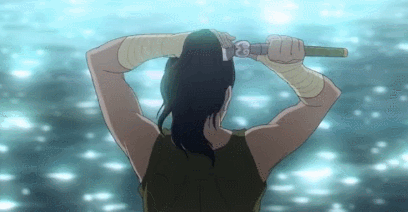
For a little bit of context, there’s an incredibly popular episode from Avatar: the Last Airbender called “Zuko Alone.” It picks up after he leaves Iroh in “Avatar Day,” because his uncle kind of pointed out that the hunt for the Avatar might be a tad on the futile side. His brain can’t reconcile this, so the episode instead shows him trying to blindly stick to this task, while feeling as though he has no place in the world, and being rejected by anyone who finds out who he really is. He struggles with inner darkness, inner pain, and the whole time his story is punctuated by flashbacks of his relationship to his sister, his mother’s disappearance, and his father’s ascension to Fire Lord.
I’m not sure I’d call it the high point of ATLA (“Crossroads of Destiny” gets that honor), but it is kind of everything with regards to Zuko, easily one of the strongest characters Bryke have ever written. Also it did a great job of not endorsing his self-destructive tendencies or making excuses for him.
“Korra Alone” was announced (and screened) at the 2014 New York Comic Con, and when Bryke first said the episode title, the audience screamed. Smugly, from the comfort of my couch, I shook my head at the livestream and declared that there was no way this could measure up.
Well, color me dead wrong. I forgot that it was starring Korra, and she not only measures up, she creates a new goddamned reality the world didn’t know it needed.
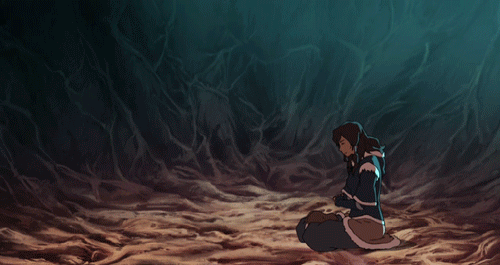
Just thinking about the episode for first-time viewers, it does exactly what it needs to do. It’s impactful coming off the [mostly] Korra-less “After All These Years” to not just see her, but feel what she’s going through and feel that isolation, even when she’s surrounded by her parents and other loved ones. Though it somewhat takes on the travel+flashbacks format of “Zuko Alone,” even Korra’s present-day plot isn’t strictly sequential—most notably with us learning the real reason she entered the earthbending cage-match, with the flashes moving faster to get her to the swamp. It gives the entire episode a very ungrounded feel, which for the viewer does two things:
You desperately begin to want Korra to connect and be stabilized, because there is an inherent discomfort from the loose form for your brain (not a bad thing...an effective discomfort)
It REALLY gives the impression that time is passing in this episode
The second point is especially striking when you consider the scope. We’ve got in one “plotline” (for lack of a better term): Korra underground fighting, following a ‘dog’, and getting sucked into the swamp where she meets Toph. This alone covers significant ground. Then we have her flashbacks of leaving Republic City, not improving in her home and Senna begging her to go to Katara, Katara’s first healing session, the letters from friends that paint time as passing, Katara’s ‘wiggle your toe’ session, Tenzin visiting, Korra’s narrated letter to Asami while she meditates and trains, her leaving the SWT, her failing to apprehend the thieves, turning from Yue Bay, cutting her hair and donning new clothes, the tree of time scene, then traversing every possible landscape.
HOW WAS THIS ALL IN A 22 MINUTE EPISODE?

Yeah. This is three years, no question about it. It’s visually stunning, but there’s also this extreme sense of loss that the viewer is clued into, and the aimlessness that is heavily felt. Korra’s physical appearance changing was the external manifestation of this, and the symbolism surrounding it was as clear as when Iroh and Zuko did the same nearly 8 years prior. Toph popping out at the end is the one bit of relief, and it *really* shines, especially given her voice actor being perfect and sounding instantly familiar to us (did Philece Sampler just watch hours and hours of Jessie Flower footage or something??).
I can’t see this not landing for someone the first time through, to be perfectly honest. It sets up Korra’s journey for the season, and with her still out of touch from Raava and still away from friends and family, there’s a lot that needs resolving, and that the audience should definitely want to see resolved.
Placing “Korra Alone” in the context of the entire season, and the series at that (or even the franchise) is a different ballgame. Not a worse one, but it certainly means that you can consider this in Korra’s healing arc as a whole.
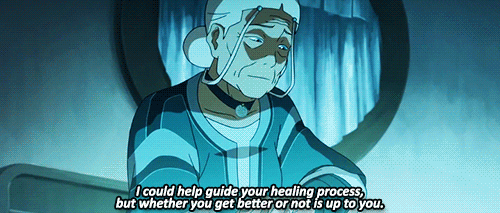
I’ll fully admit I was not 100% on-board with Dark!Korra being the representation for PTSD at first, even though this is, at the end of the day, a Y7 show that needs to break down these concepts to children. However, it worked within this episode, and given how the whole thing was resolved through mindful meditation (plus how the little bit of metal Korra extracted didn’t end up being a cure-all), I think it justified itself in a general sense.
In the case of “Korra Alone” alone (lol), it worked in a sort of 3rd person omniscient way, to quickly convey Korra reliving this moment and having a ton of anxiety each time it occurred. What had the potential for being a bit of a cheap visual metaphor instead mostly landed, giving us a kind of visceral understanding of that anxiety (and as someone who’s had to explain what that feels like to people who’ve never experienced it, that’s really no easy task).
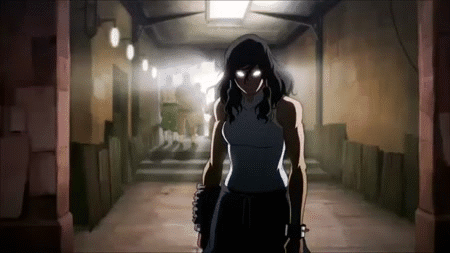
When it comes to Korra’s healing arc as a whole, I’m going to have to be an asshole and tell you that Gretchen ( @theonewithpurplehair ) and I are planning on writing something about it when she gets back from South Africa. It will be lengthy and emotional and talk about THEMES and how important this is. We do that.
But even in advance of it, I think there’s a point to be made about Bryke choosing to have a healing arc in the first place. They didn’t have to, you know. And for some, especially in light of the indelicately worded “I needed to suffer” quote from the final episode, having two white men use a bisexual indigenous woman to explore a story about recovering from extensive trauma is uncomfortable, which is absolutely a valid tension.
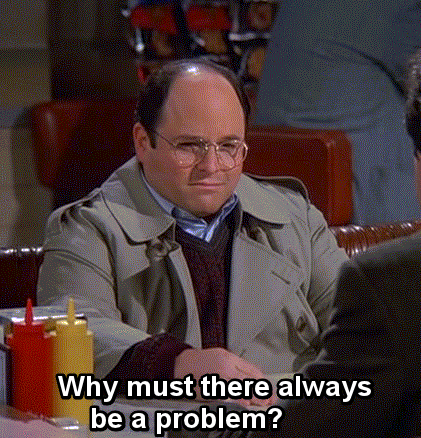
However, something I think @glamourweaver highlighted best back when fandom dialogue was more...heightened, was that like it or not, Korra’s gone through major traumas throughout the show. In Book 1, she lost most of her bending and was so affected there was not-subtle-at-all suicide imagery included. Then Aang’s magic touch fixed her depression! Yay!
In Book 2, she had Raava ripped out of her and lost her (admittedly newfound) connection to her past lives, calling into question her very identity as the Avatar. The whole astral-projection thing she did? That was just Korra’s strength of soul, separate from anything to do with reincarnated powers. So yeah, reconnecting with Raava and becoming the first Avatar of a new spiritual age would totally be healing, but the idea that there’s no trauma she’d need to explore? Book 3 is near and dear to me, but in many ways it almost feels like a new show, complete with not bothering to tap into implications of the first 2 seasons. Whoops!
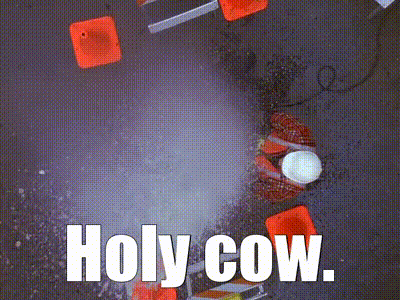
It’s yeah, not great how much she was put through the wringer when you get down to it. But Bryke are conscientious and tend to fix their mistakes. In a lot of ways, Korra being given PTSD—like...realistic PTSD—and an ensuing healing arc in Book 4 was the direct answer to everything previously glossed over.
The result? To that, I’ll just go ahead and quote @beccatoria’s essay (seriously, read it), because it lays out the meaning so well:
“This brings us to the final part of my argument: forming new meanings. The therapies I have mentioned so far focus on the physiological issues. The brain blows a fuse and can't process what it has experienced, so if you fix the fuse, you fix the processing problem. This still leaves a person who has been through an extremely traumatic event. PTSD almost always presents alongside issues such as depression and can lead to feelings of isolation and guilt. Individuals may either feel emotionally disconnected or emotionally out of control and have often internalised damaging messages as a result of their trauma. There is often a focus on creating new meanings as these memories are re-examined. We see this in Korra's evolving attitude to her own experiences.
Zaheer asserts that her power is limitless. She should never have been able to survive the poison. He offers her an opportunity to recontextualise her survival as evidence of her enormous resilience and strength rather than as a failure because she did not survive unscathed. While she is recovering, Katara tells her about Aang and how he chose to find meaning in his suffering. “What will I find?” Korra wonders. “Won't it be interesting to find out?” Katara asks. The answer comes in her final conversation with Tenzin. Korra chooses to form new meanings for her experiences, and chooses to find a message of compassion and empathy.”
Yes, the landing was not 100% perfect, but the recontextualization of her suffering and subsequent empowerment through that was clear. Korra ended the series hopeful about the future, and more at peace than we had seen her—certainly more at peace than that flailing teenager who was more willing to demand a duel with Amon than admit fear. She had grown and found ways to reconcile what happened into how she wanted to lead her life.

Do you mind if I get personal for three seconds? I have general anxiety, as well as a very specific (and admittedly mild) trauma associated with driving, and though I’ll never equate my experience to Korra’s brutalization (seriously, mine just involves a hangover, a large cup of coffee, pizza, and a bridge), there is something about that terror of being out-of-control I identify with, and it features so strongly in Korra’s arc. I also know what it’s like to want to will something away and fight against everything that’s happening. Why can’t my stupid brain just STOP?
But the thing is, like beccatoria said, it’s about contextualizing it. Anxiety never goes away, and it certainly can’t be willed out of the forefront. But you can choose to look at things with a new point of view. To be able to sit with a feeling and recognize what it is, even if it’s massively uncomfortable or puts your body in flight-or-fright mode. Personally, I’ve come to look at my anxiety/intrusive thoughts as a very badly behaved cat. The cat is weirdly trying to protect me, and truly thinks this is what will help keep me safe, but well...it’s an idiot:

Still, it’s *my* idiot, damnit, and now when I drive, I can just picture her in the passenger seat chewing on the emergency brake. She’s also the survival mechanism my brain came up with to shield me from more chaotic forces in my life, and that’s kind of neato, when you get down to it.

*Kind of*, okay? (I still need to replace this chair, though Trystane Nymeros has done more damage to it with his many toes).
The point is, Korra’s story is powerful and salubrious because she just...goes through hell and back, she really does. But she not only finds meaning in it, she finds positivity and hope. She is at her MOST secure when she flings herself in front of that spirit gun, and then talks down the season antagonist with a few words. It’s uplifting, without pulling *any* punches on how ugly and terrifying and isolating PTSD can be.
There were punches thrown outside of “Korra Alone” too, but that was the episode that waded in most deeply, and somehow did it in an appropriate fashion for a Y7 show. I can’t sing its praises enough, truly.

Having laid this all out, it seems almost trite to mention the Korrasami aspects of the episode. It didn’t escape the fandom that Korra telling Tonraq and Senna she wanted to go back home read like a coming out conversation, and the “Dear Asami” sequence is without question the most stunning of the episode. Though @queertoonqueertoons lays out why there’s other reasons for that as well. But like, what can be said? Korra lets herself be vulnerable around Asami in a way she won’t with others, and Asami asks for very little in return. It was a nice, continuing thread, but it never became a focal point of the episode, or the series, so shame on me if I buck the trend.
I can give overall thoughts on Book 4 when I pull together the final post for this ranking, but like Korra, I think I’m ending on a pensive and positive note. “Korra Alone” will do that for you, even though it may be the darkest episode of the franchise. What a masterpiece.
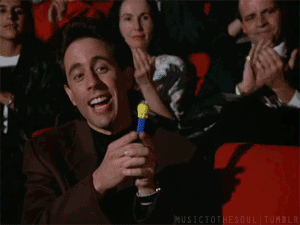
#13: 4x08 “Remembrances”
#12: 4x11 “Kuvira’s Gambit”
#11: 4x09 “Beyond the Wilds”
#10: 4x07 “Reunion”
#9: 4x06 The “Battle of Zaofu”
#8. 4x12 “Day of Colossus”
#7 4x01 “After All These Years”
#6 4x03 “The Coronation”
#5 4x04 “The Calling”
#4 4x05 “Enemy at the Gates”
#3 4x10 “Operation Beifong”
#2 4x13 “The Last Stand”
Book 2 ranking/essays found here
173 notes
·
View notes
Text
How to Support Someone With Alcohol Addiction
The American Medical Association (AMA) defines alcoholism or alcohol dependence as a primary, chronic disease with genetic, psychosocial, and environmental factors influencing its development and manifestations.
Research shows that while some people develop a dependence on alcohol due to family history, childhood abuse or poor self-esteem, a few others get into alcohol use because of peer pressure or to fit into a certain group of people. However, irrespective of the influences that persuade a person to use alcohol, the bittersweet truth is that the journey from “one drink” to “one last drink” is mostly not anticipated.
It is so because unlike the popular belief, once a person passes the threshold levels of alcohol abuse, dependence and tolerance, he/she tends to develop an addiction to alcohol. By this time, his/her brain chemistry gets altered due to substance use and it becomes extremely difficult for him/her to quit alcohol because of the discomforting withdrawal symptoms.
It is also important to know that alcohol addiction is different from alcohol abuse. Those who abuse alcohol usually drink heavily, but not regularly. Such people behave recklessly or have a tendency to mix substances of abuse, which can lead to alcohol poisoning. Further, abuse may lead to addiction, but not vice-versa. However, alcohol addiction involves all aspects-dependence, abuse and tolerance.
State of alcohol addiction in America
Alcoholism is soaring in the United States, the worst part being the fact that more than 80,000 people are losing their lives to alcohol every year.
Recent statistics by renowned research and analysis organizations like the National Institute on Alcohol Abuse and Alcoholism (NIAAA), National Council on Alcoholism and Drug Dependence (NCADD) and Substance Abuse and Mental Health Services Administration (SAMHSA) reveal the current state of health of Americans.
Here are a few alarming statistics:
Alcoholism is the third leading lifestyle-related cause of death in the nation. (Source: NCADD)
Six people lose their lives due to alcohol poisoning every day; three out of four such people are men. (NIAAA)
Every day in the U.S., another 29 people die as a result of drunk driving crashes. That’s one person every 50 minutes. (Source: MADD)
Around 4,700 teens are killed every year due to alcohol use, which is way more than the deaths caused by all illegal drugs combined. (NIAAA)
Men are twice as likely as women to overdo drinking, be intoxicated behind the wheel or be involved in fatal motor vehicle accidents. (NIAAA)
Approximately one in two women of childbearing age drink, and 18 percent of women in this group binge drink (five drinks per binge, on an average).
Less than 8 percent of the 15 million plus people who struggle with an alcohol use disorder receive treatment. (NIAAA)
Up to 40 percent of all hospital beds in the United States (except for those being used by maternity and intensive care patients) are being used to treat health conditions that are related to alcohol consumption. (NCADD)
Knowing the warning signs of alcohol addiction
Alcohol consumes the body and the mind of the person using it. While the warning signs of drug and alcohol addiction are many, the disruption in normal life caused due to alcohol addiction has serious effects on the afflicted person’s thoughts, feelings and actions.
Hence, even if alcohol addiction may not seem like a real thing, it is a big menace. To stay away from being trapped, you should be watchful of these red flags:
Resorting to alcohol for every celebration or sorrow
Preferring to drink alone than in someone’s company
Lying about the drinking habit and behavior
Binge drinking whenever and wherever possible
Negligent attitude toward own health and responsibilities
Reckless behavior or no fear of law or rules after drinking
Frequent blackouts, leading to impaired memory functioning
Weight gain caused due to slow absorption of nutrients from food
Development of tolerance to the substance
Discomforting withdrawal symptoms, severe than a hangover
Understanding effects of alcohol use on your body
Alcohol is not the solution to any problem. In fact, its dependence, abuse or addiction is a problem in itself.
The resultant alterations in brain chemistry caused due to alcohol addiction affect both physical and mental well-being of the afflicted person. When left untreated, existing issues aggravate and comorbid disorders develop. Getting an accurate diagnosis and undergoing proper treatment can often be a far-fetched dream if the consulting expert is unable to determine if the symptoms are present due to an addiction or a mental illness.
Here is a view of the short- and long-term effects of alcohol use on your body:
Short-term effects
Long-term effects
· Slurred speech, drowsiness, headaches
· Vomiting, diarrhea, anemia
· Difficulty in breathing
· Distorted vision and hearing, decreased coordination
· Coma, blackouts, unconsciousness
· Impaired judgment
· Hormonal changes
· Sleep problems
· Accidental injuries due to inebriation, violent behavior
· Fetal damage
· Loss of productivity, increased problems in relationships
· High blood pressure, alcohol poisoning, liver disease
· Nerve damage, stroke, heart-related diseases, permanent brain damage
· Ulcers, gastritis, cancer
· Sexual problems
· Depression, personality disorders, suicide
Supporting someone with alcohol addiction
If someone you know is experiencing the above mentioned signs and effects of an alcohol addiction, then your support can be a great aid.
It is with your support that attaining recovery can become a priority for them and everything they love does not have to come last. When that happens, the afflicted person learns to persevere and be remembered for his/her recovery and not his/her addiction.
Here are ways of helping someone with an alcohol addiction:
Understand the nuances of alcohol addiction by seeking guidance from published resources and qualified experts.
Encourage them to be open about the challenges faced so that you can help them find alternates or solutions to the same.
Tell them about the effects their habits are having on you/others so that they do not take you/others for granted.
Convey to them that you are by their side always irrespective of how bad or good the situation may be.
Convince them to join a support group or attend community meetings to learn from people facing similar battles.
Spare time to take them to detox or therapy sessions whenever possible so that they do not feel alone or demotivated.
Lead by example by making a no-drinking pact and rewarding each other for a sober lifestyle from time to time.
Be forgiving and avoid blaming them for anything wrong happening in their life, even when the same is true.
Avoid confronting them or getting into an argument with them when they are not sober.
Remember to keep a tab on your physical or mental health while trying to help them.
Refrain from drinking yourself to escape the stress or find an easy solution.
Convince them to seek a second opinion from another qualified expert when no favorable results are visible.
Ways to reduce alcohol addiction stigma
As alcohol addiction continues to claim more lives than ever, it is important to remember that the stigma surrounding alcohol addiction is a key contributor to the same.
Supporting someone with alcohol problem is possible. You can do your bit to reduce the deadly stigma by following the useful tips given below:
Remember that addiction is a disease and spread the word so that others too can change their outlook.
Practice the habit of not judging people with addiction and encourage others to do so too.
Talk statistics and proven facts instead of communicating personal opinions.
Offer help and support to people with addiction by convincing them to seek help.
Maintain your calm and composure when helping an afflicted person in denial.
Guide people who have little control over their situation to seek help.
Give your best efforts to help the afflicted person in identifying the root cause of his/her addiction.
Never allow anyone to treat a person with addiction in ways that can put him/her under undue pressure.
Lead by example and stay away from any form of addiction yourselves.
Be open about your shortcomings (read: addiction) if you have one and seek timely help.
Motivate people to share their own battles and recovery journey so that others can learn from them.
Join organizations and nonprofit agencies committed to such issues.
How to help a person with addiction who doesn’t want help
Living in denial or showing little or no willingness to talk about addiction is a characteristic many people with addiction have.
Should the same be a thing of worry? Not really! There are several ways of helping a person living in denial about addiction, including the following:
· Persuasion: The first step involves communicating how their habits are affecting the physical or mental health of the members of the family/neighborhood. To attain success, it is important to plan the conversation in advance, fix a mutually suitable time for the conversation and cite specific instances instead of personal opinions.
Further, confrontations and blame game should be avoided. You must do this over a few days. Additionally, you can simultaneously do the following things to ensure that your efforts do not go in vain:
o Telling them on a regular basis that you/others understand how difficult it must be for them.
o Convincing them to join support groups where they can learn from people facing similar struggles.
o Discussing the importance of a healthy lifestyle and what they are missing out on due to their habits.
o Joining activities that you can do together, such as a sport, dancing classes or anything else of mutual interest.
o Accompanying them to the doctor at least during the first few visits and when they are low or demotivated.
o Attending family therapy sessions to strengthen the bond between the two of you and other members of the family/loved ones.
· Setting clear limits and boundaries: While allowing the afflicted person to take some time to mend his/her habits through the aforementioned ways, it is also necessary to let him/her know that he/she does not have an indefinite period of time to think and act.
You can do so by conveying the eventual consequences of his/her habits. Further, you should also refrain from enabling him/her. It is natural for family members/loved ones to fall prey to the tantrums or the lies of the afflicted person. This can give the false impression to the afflicted that he/she has control over everything.
Taking a stance and sticking to it helps the afflicted person know that he/she is in a tight spot. This has the potential to convince him/her to at least seek professional guidance for his/her habits, if not the treatment in the first go itself.
· Medical intervention: If nothing seems to be working well to help an afflicted person in denial, it becomes extremely important to reach out to a professional interventionist or a certified medical practitioner. Their experience and expertise can help them reason with the afflicted person. However, you should plan this in advance so that there are no last minute issues. Doing so is possible by involving concerned family members and friends who know the afflicted person well and are ready to stand by him/her.
Further, you should also be aware of the concerned person’s habits and behaviors. This can help the interventionist have a backup team ready, just in case a medical emergency arises. You should also practice self-care by joining a support group or consulting a therapist yourselves. This is necessary because sometimes, in our endeavor to help someone else, we end up putting our physical or mental health at stake.
Alcohol addiction is treatable
Regardless of whether a person is an occasional drinker, regular drinker or a heavy drinker, the truth is that alcohol does not discriminate when it comes to affecting the user’s body and mind. It slowly crawls upon to become an addiction and with time, instead of the person abusing alcohol, alcohol begins to abuse him/her back.
But the good news is that alcohol addiction is treatable. With the help of a comprehensive treatment program that involves therapy, detox, self-care and a relapse prevention strategy, seeking a full, healthy and lasting recovery from alcohol addiction is possible. The key to the same is consulting a qualified addiction expert who has experience in dealing with patients with addiction as well as comorbid disorders. He/she can also enable the family members/ loved ones of the afflicted person with ways to help someone with alcohol addiction.
You too can help someone overcome alcohol addiction. When you religiously follow the dos an don’ts of helping a person with addiction, it can be a blessing for the afflicted person and his/her loved ones.
Take the first step toward supporting someone with alcohol dependence today and witness the difference you can make to their lives! Every bit of your support for alcohol addiction and the people afflicted with it, will count, sooner or later.
Source: http://EzineArticles.com/9957653
The post How to Support Someone With Alcohol Addiction appeared first on Grow! 420.
Related posts:
Useful Information For The Novice Organic Gardener
Marijuana Is Worse Than Alcohol?!? Oklahoma Looking To Pass Medical Marijuana!
Drug Monitoring Programs Are Driving More People Toward Heroin, Says Study
from Grow! 420 https://ift.tt/2MQq65J
via IFTTT How to Support Someone With Alcohol Addiction Long Robert https://ift.tt/eA8V8J August 16, 2018 at 09:59AM
0 notes